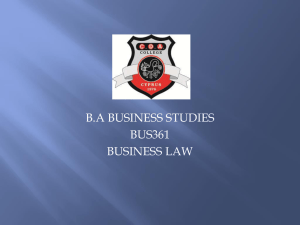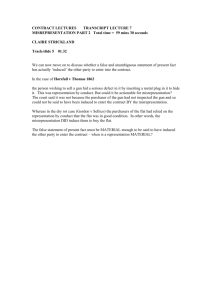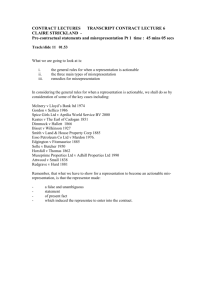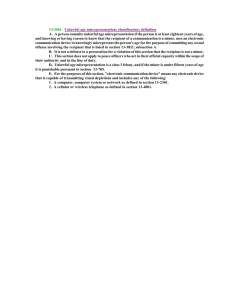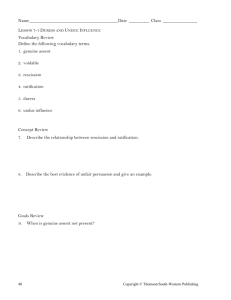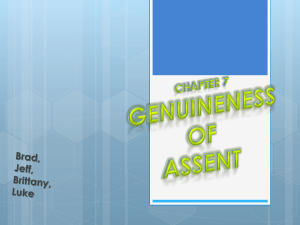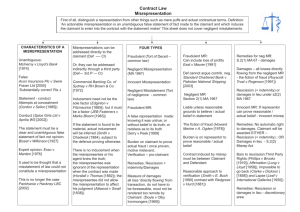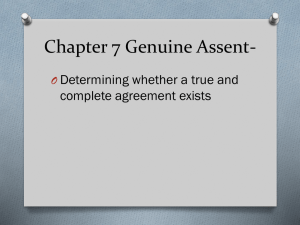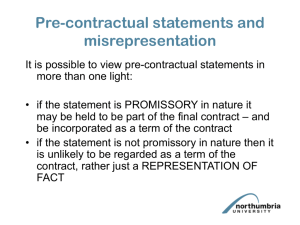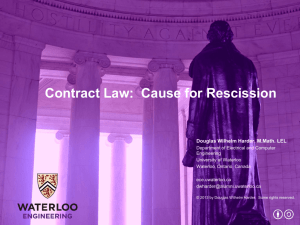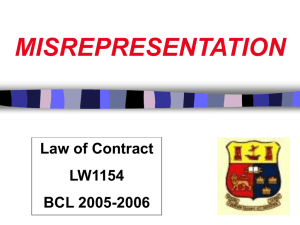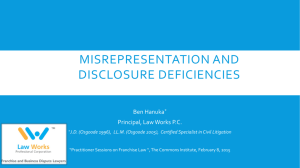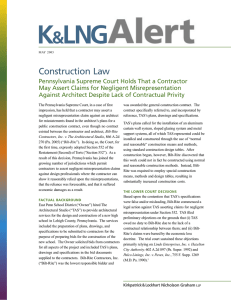Representations and
advertisement
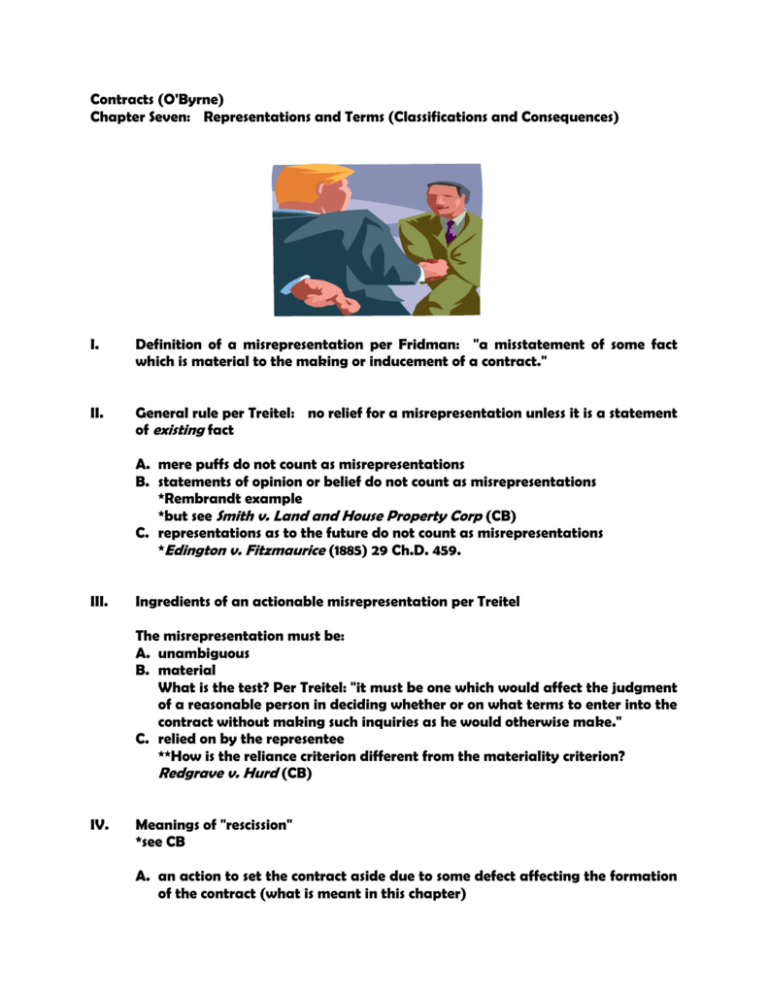
Contracts (O'Byrne) Chapter Seven: Representations and Terms (Classifications and Consequences) I. Definition of a misrepresentation per Fridman: "a misstatement of some fact which is material to the making or inducement of a contract." II. General rule per Treitel: no relief for a misrepresentation unless it is a statement of existing fact A. mere puffs do not count as misrepresentations B. statements of opinion or belief do not count as misrepresentations *Rembrandt example *but see Smith v. Land and House Property Corp (CB) C. representations as to the future do not count as misrepresentations *Edington v. Fitzmaurice (1885) 29 Ch.D. 459. III. Ingredients of an actionable misrepresentation per Treitel The misrepresentation must be: A. unambiguous B. material What is the test? Per Treitel: "it must be one which would affect the judgment of a reasonable person in deciding whether or on what terms to enter into the contract without making such inquiries as he would otherwise make." C. relied on by the representee **How is the reliance criterion different from the materiality criterion? Redgrave v. Hurd (CB) IV. Meanings of "rescission" *see CB A. an action to set the contract aside due to some defect affecting the formation of the contract (what is meant in this chapter) 2 B. voluntary setting aside of the contract by both parties C. incorrectly, it refers to situation where one party is discharged from having to carry out his or her obligations under the contract because the other party has committed a serious breach V. Difference between a claim for damages and an action to rescind a contract damages: plaintiff seeks money damages for the performance which should have been rendered under the contract. rescission: plaintiff seeks non-enforcement of the contract (parties are restored to their pre-contractual position.) VI. Liability in tort: fraudulent misrepresentation For the purposes of this class, rely on McCamus, citing Redgrave and related case law, who states that a representation is fraudulent if either the misrepresentor knew that the statement was false or made the statement “recklessly and without care, whether it was true or false.” VII. Liability in tort: negligent misstatement For the purposes of this class, rely on the following assessment by McCamus as to when a negligent misrepresentation may occur in the pre-contractual arena: As a general proposition, it appears to be sufficient to establish a ‘special relationship’ if the reliance of the representee on the representor’s statement was both foreseeable by the representor and reasonable on the part of the representee. Where the misrepresentor does not possess any particular expertise or access to superior skill and knowledge, reliance may well be unreasonable and the special relationship will be held not to exist. Note too that negligent misrepresentation if a recognized analogous category of proximity under Coopers. The parties are proximate due to the defendant's invitation to rely. IX. Duty to disclose? Bank of B.C. v. Wren X. Bars to actions for rescission based on innocent and negligent misrepresentation 3 A. Laches B. Affirmation of contract C. Restitution is impossible, impractical or unjust. *Kupchak v. Dayson Holdings Ltd. D. Third party rights are prejudiced E. Execution of the contract in the case of land? F. Execution of the contract for the sale of goods?? *see the rule in Leaf International Sale of Goods Act R.S.A. 2000, c. S-2: s. 13(4) When...the buyer has accepted the goods or part of them...the breach of any condition to be fulfilled by the seller shall only be treated as a breach of warranty and not as a ground for rejecting the goods...unless there is a term of the contract expressed or implied to that effect. s. 35 The buyer shall be deemed to have accepted the goods ... (c) when after the lapse of a reasonable time he retains the goods without intimating to the seller that he has rejected them. XI. Bars to actions for rescission based on fraudulent misrepresentation (note: whether the contract is executed or not is irrelevant) A. B. C. D. Laches Affirmation of Contract Restitution is impossible, impractical or unjust Third party rights are prejudiced
